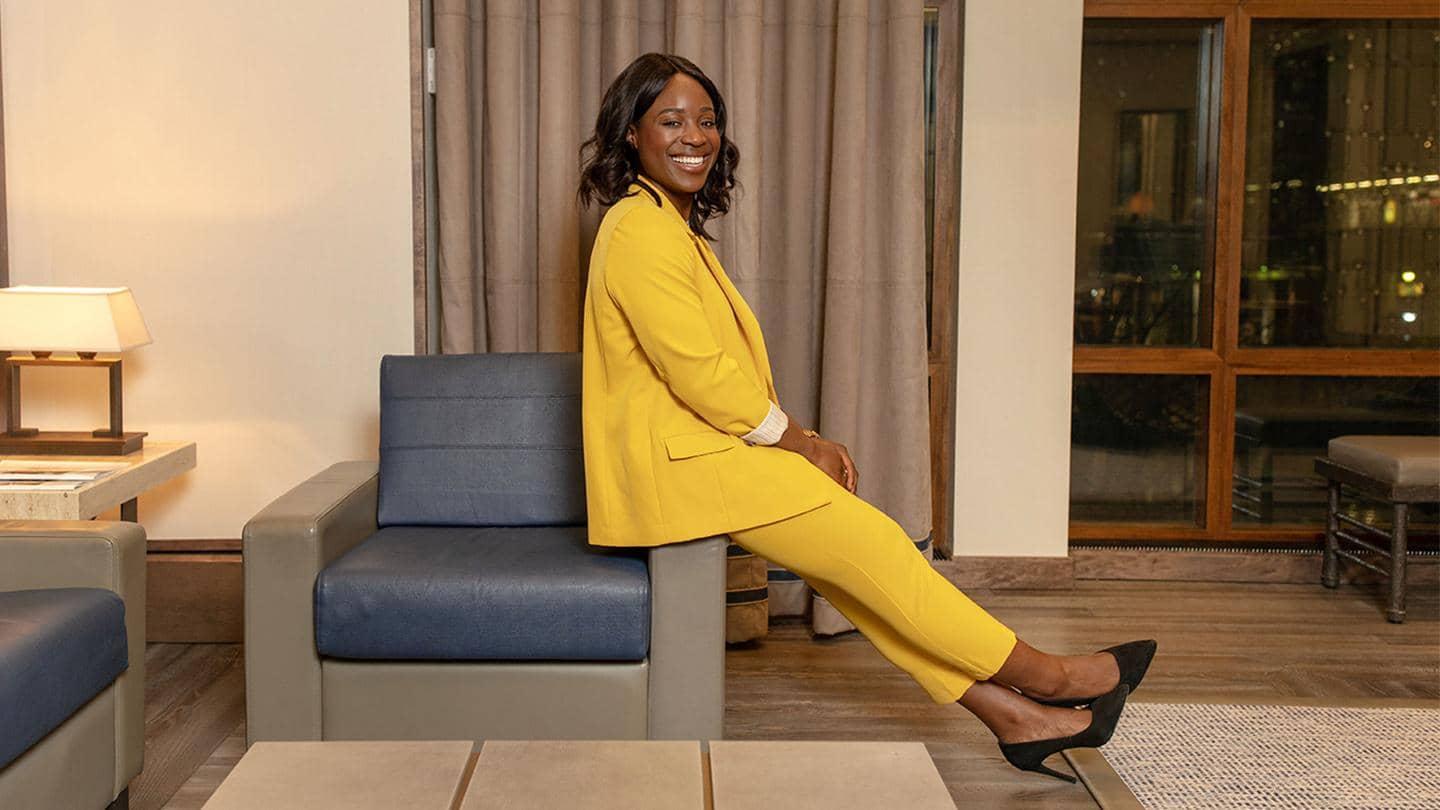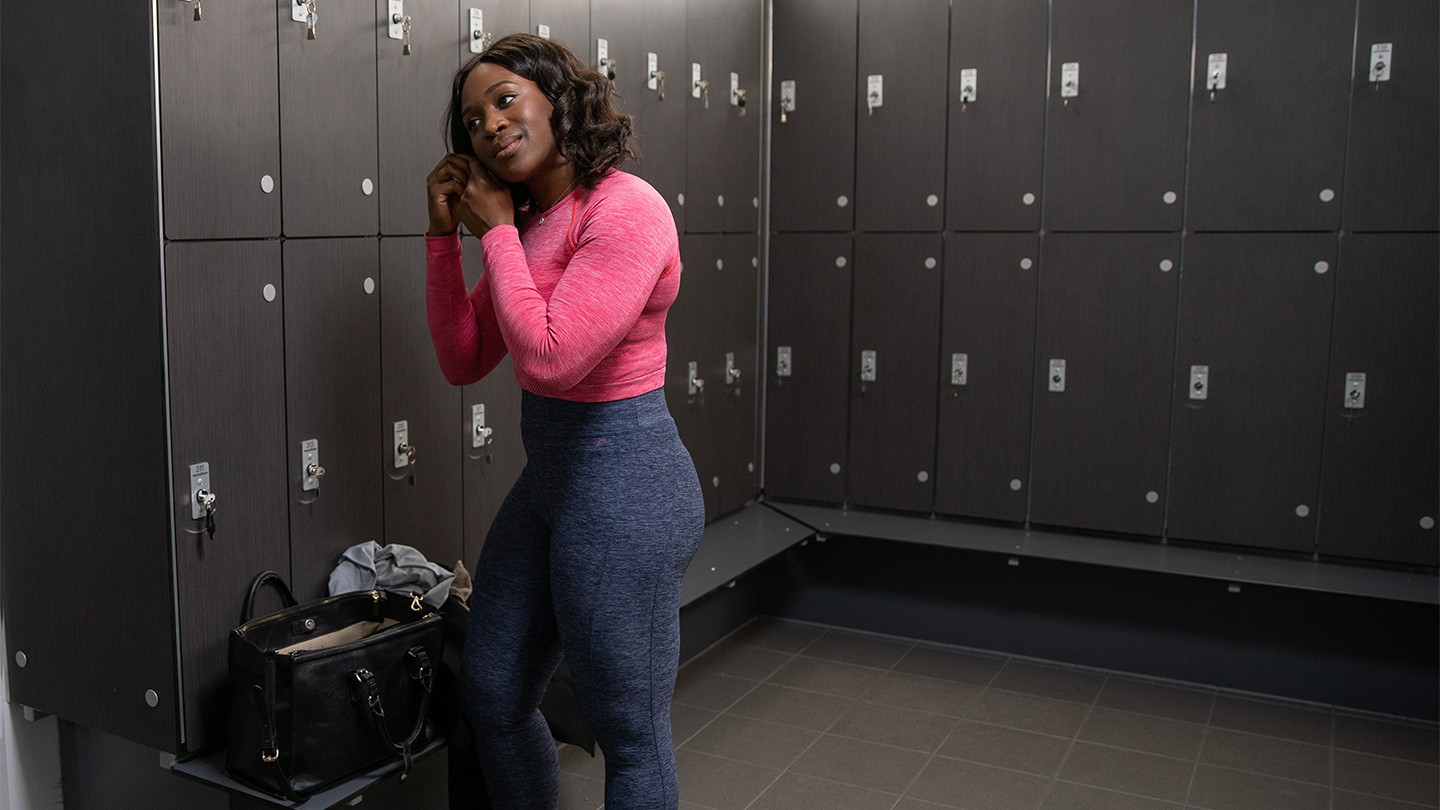
“Everyone is different – and that is glorious”
In the run-up to International Women’s Day, we’re profiling some of our colleagues who are making a difference and helping to make sure that ‘everyone’s included’. This week we talk to Abisola Barber, Markets Business Manager at Barclays Investment Bank, about how “not fitting in” made her a fighter – and why she’s determined to break down stereotypes about who can succeed in finance.
“So there’s no one there that looks like me? Cool, I’ll be that person.”
Abisola Barber, Markets Business Manager at Barclays Investment Bank, is describing the mentality that has propelled her onwards and upwards within an industry she says is often misconceived as “pale, male and stale”.
The 27-year-old, who lives in Greenwich, London, joined Barclays as a summer intern in 2013 following spells at Google, Goldman Sachs and J.P. Morgan. After taking a year out to complete her master’s degree, she returned to Barclays in 2014 as a graduate and has since championed a slew of diversity and inclusion initiatives – and won multiple industry awards.
Her commitment to speaking up started at an early age when, aged only 11, Abisola volunteered with Hertfordshire County Council and the UK Youth Parliament to ensure, she says simply, “that certain people’s voices were heard”.

I was one of few black people at my school, so I’m used to not ‘fitting in’. I’m used to fighting 30 times harder than everyone else to get to where I need to be.
Markets Business Manager at Barclays Investment Bank
Instead of embarking on what might have seemed a logical next step – a career in politics – Abisola found herself drawn towards finance after studying economics at A-level during the 2009 financial crisis.
“We were being taught certain things in class and then seeing the complete opposite happening in real life,” she says. “The disconnect between practice and theory was really interesting to me and I wanted to understand how a bank impacts society, and vice versa.”
Stepping up to bigger challenges
Abisola says she harboured certain preconceptions before entering the industry as a graduate, but there was one in particular she regrets only managing to tackle in the past few years.
“I never really thought I was good enough to work in an investment bank. I thought that I’d need to have gone to Oxbridge and studied straight maths. Back then, it didn’t seem to matter to me that I had studied Philosophy, Politics and Economics (PPE), gone to a good school, and got a Master’s degree, because I didn’t have any faith or confidence in myself.”
She says she eventually overcame such fears by reminding herself of one simple fact: Barclays hired her for a reason. Now, she is keen to assert that across the industry, and to new-starters especially: “You need to own being you.”
“I’ve learnt that and now it’s something I’m proud of,” she continues. “Nobody wants a robot or a carbon copy of everyone. That’s the beauty of diversity – everyone is different, and that is glorious.”
What she describes as a “key change in confidence” was further boosted when one of her mentors within the bank spotted her ability and encouraged her to apply for a front office role – and she got it.
“The power of mentors is phenomenal,” says Abisola. “For example, my first manager at Barclays was instrumental to my growth. They gave me the space to grow and do different things – but never made me feel like I was alone.
“The best thing about having a mentor, though, is that they get you to believe in yourself. They give you the confidence to step up to a bigger challenge”.
Owning yourself, owning your career
While Abisola credits her graduate mentor – and the inclusive culture of the bank – for her development, she makes it clear that the power to succeed comes from within.
“I’ve had to fight for a lot of things in my life,” says Abisola. “I grew up in a village in Hertfordshire where we were the only black family. I was one of few black people at my school, so I’m used to not ‘fitting in’ – I’m used to fighting 30 times harder than everyone else to get to where I need to be.
“People might look at me and think, ‘Oh she’s black, she’s a minority, she’s a Christian’ – but I was never going to let any of that stop me from going where I want to go.”
Empowering the future generation
Now, her involvement with Barclays’ Win network allows Abisola to marry her interest in the state, economy and society with her passion for pioneering change at work.
Having started by speaking at recruitment events – including reassuring freshfaced interns that she was once one of them – she now co-chairs Win’s Recruit & Retain Forum, which focuses on the early recruitment and support of talented women through university outreach, social media and events.
The forum’s new campaign for 2020, ‘Letter to my younger self’, is aimed at graduates, interns and apprentices.
Abisola explains: “It’s for those who don’t have that much support when they start. It’s about letting them know what they should look out for and what they should be aware of – and in the process it gets former graduates, even those now in senior roles, to reflect on their own careers.”
The campaign will work alongside the forum’s host of regular networking events, mentorship schemes and other events like the Barclays Career Kickstarter programme hosted at Rise London. The next event, to be held in April, is for students who might not consider a career in financial services or technology – and is aimed at dispelling some of the myths about who works in those industries.
On the inside
-
We often forget just how blessed we are to have all the resources and options available at our fingertips. Every day, I am motivated by that. I never want to be in a position where I’m not thankful for the opportunities presented to me. I want to grasp them with both hands.
-
The upcoming generation of talent: their resourcefulness, new ways of thinking, and ability to challenge established norms and really move the needle are a breath of fresh air. On the other hand, so many lack the confidence, drive, ability and, importantly, unprejudiced opportunity to succeed. If there is anything I can do to support, open doors for or encourage them, I hope to do that.
-
Equality means not having to wonder whether I will be perceived in a certain light – whether my likelihood to succeed will be questioned on the basis of my race or gender or faith or background. Most importantly, it means feeling truly valued.
-
This depends not only on the industry but also on the specific segment. Financial services are seen as male-dominated but if you look at HR and executive or personal assistant roles, these tend to be skewed in the opposite direction. Companies need to evaluate their people – understand the dynamics and underlying biases, then make informed, supported and genuinely measurable steps to progress.
-
I think it serves as a fantastic storyboard to educate people about the journey women have made over the centuries and to inspire the next generation to push for change. In recent years it has helped hold organisations to account. And it’s is not just a women-only day: people of every gender and sexual orientation can recognise and support.
-
My first line manager at Barclays, Jacqui Signor, set the bar for nurturing, guidance, and support – all whilst allowing me the space to grow, make mistakes and take on new challenges. Jacqui moved roles and her former manager, Andrew Payne – who has now left the bank – became my new line manager. He swiftly introduced me to the intensive, demanding and fast-paced environment that accompanies working with senior management. Obtaining that exposure at such an early stage in my career really set me up professionally, mentally and emotionally. I would not be who or where I am now if it were not for their impact.

If we’re going to achieve equality, companies need to evaluate their people, understand underlying biases, then make informed, supported and genuinely measurable steps to progress.”
Markets Business Manager at Barclays Investment Bank
“The aim of these events is to break down misconceptions. For me, it was, ‘I’m a black female and I’m not going to fit in’. So how can I change things after my own experience?”
With students from all academic backgrounds – including the arts, film and history – attending the outreach events, Abisola and her team prioritise showing them that: “No matter what you’ve studied, everyone has a seat at the table. You don’t need to fit the ‘pale, male and stale’ stereotype. Just look at me and so many other colleagues from different backgrounds.”
Asked how it feels to have her work in diversity and inclusion recognised – as winner of the ‘Women in Banking & Finance’ category at the WinTrade Awards 2019, finalist in the Black British Business Awards 2019, and shortlisted in the upcoming Global Thinkers Forum’s Athena40 List 2020, to name just a few – Abisola gives a long laugh.
“I still don’t understand it. I was just brought up to do the right thing,” she says, adding: “As long as someone else sees what I’m doing and they go and do it, then my work here is done.”